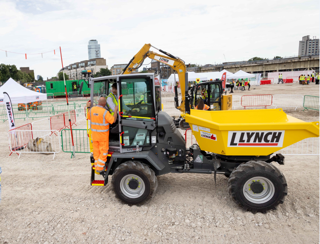Transport for London (TfL) has launched a new innovation challenge aimed at tackling some of the issues caused by roadworks for construction and utilities work.
Named RoadLab 2.0, the programme is being funded by TfL's Lane Rental Scheme, which charges utility companies and TfL contractors for digging up roads at the most traffic-sensitive times and locations.
It will focus on improving portable traffic signals to reduce congestion and look at ways in which TfL can better use data on walking and cycling in London to plan roadworks.
Portable traffic signals are used for temporary traffic management on roads. Roadworks carried out for construction and utilities work are responsible for 80% of bus delays. If portable traffic lights are not properly set up for changing traffic conditions, they can cause further delays for everyone who uses the roads.
More than 20,000 portable signals are used yearly in London, which results in thousands of hours of lost productivity, wasted time and excess carbon emissions and pollution. TfL is looking for innovative solutions that will make roads more efficient by reducing delays caused by the signals and make them more reliable.
TfL is also asking innovators for ideas to make walking and cycling in the capital safer and easier, by using data to plan roadworks around people walking and cycling. Solutions could include better real-time data about these journeys to help better plan roadworks in future.
Rikesh Shah, TfL’s head of open innovation, said: “I am incredibly excited that we’re launching RoadLab 2.0. We want to continue working with a diverse range of the best market innovators to solve some of London’s key challenges.
“We’ve proven through FreightLab and RoadLab 1.0 that working openly in partnership with innovators brings in new ideas at scale, and I’m keen we harness the ideas, skills and energy of the market to help us make London’s roads safer and more accessible for sustainable travel. I’d encourage anybody with a great idea to apply to RoadLab 2.0 and take part in our latest innovation challenge.”
TfL launched RoadLab 1.0 in 2019, with the aim to make roadworks in the capital safer, smarter and more accessible.
Solutions from the first RoadLab challenge are being used to cut congestion, including simulation technology to model roadworks and artificial intelligence software that uses anonymised social media data to detect emerging disruptions.
The deadline for applying is midday on Friday 23 December 2022. The innovators chosen to take part in the programme will receive up to £20,000 of funding to enter a 12-week trial phase, with access to TfL expertise to help them develop their products for us on London’s roads.






















Login to comment
Comments
No comments have been made yet.